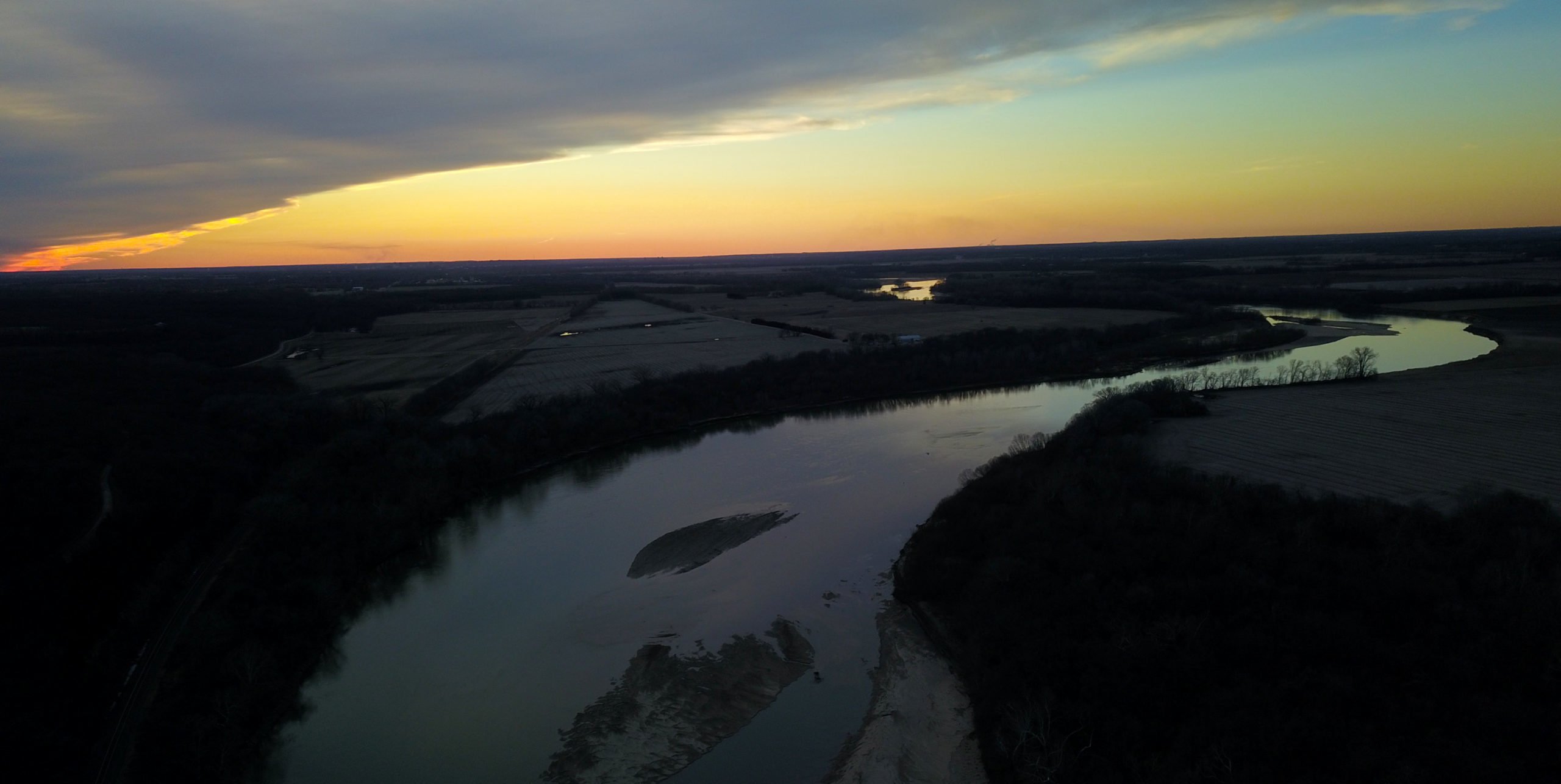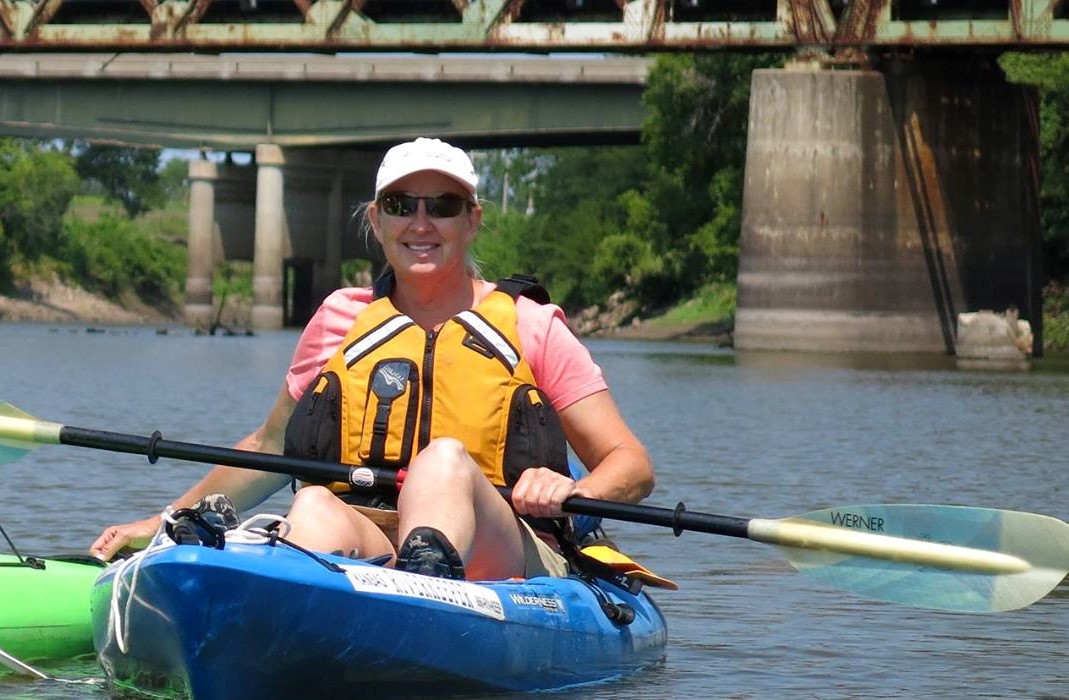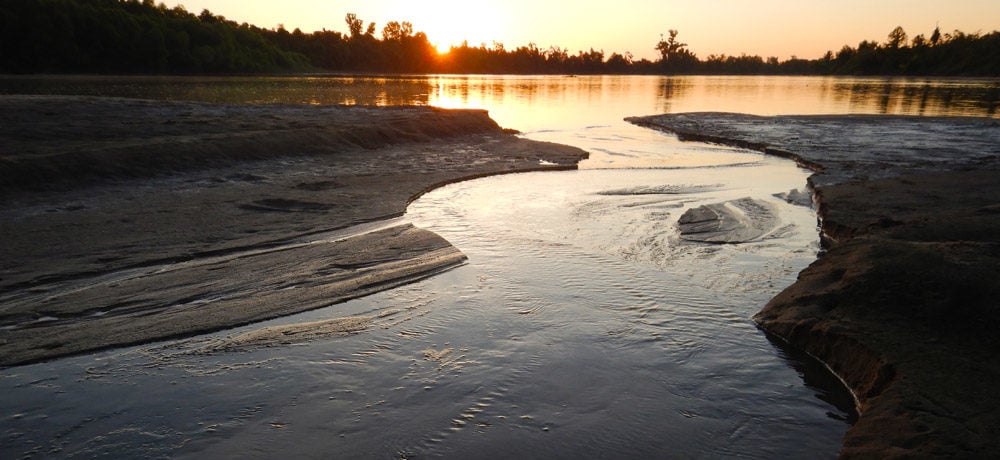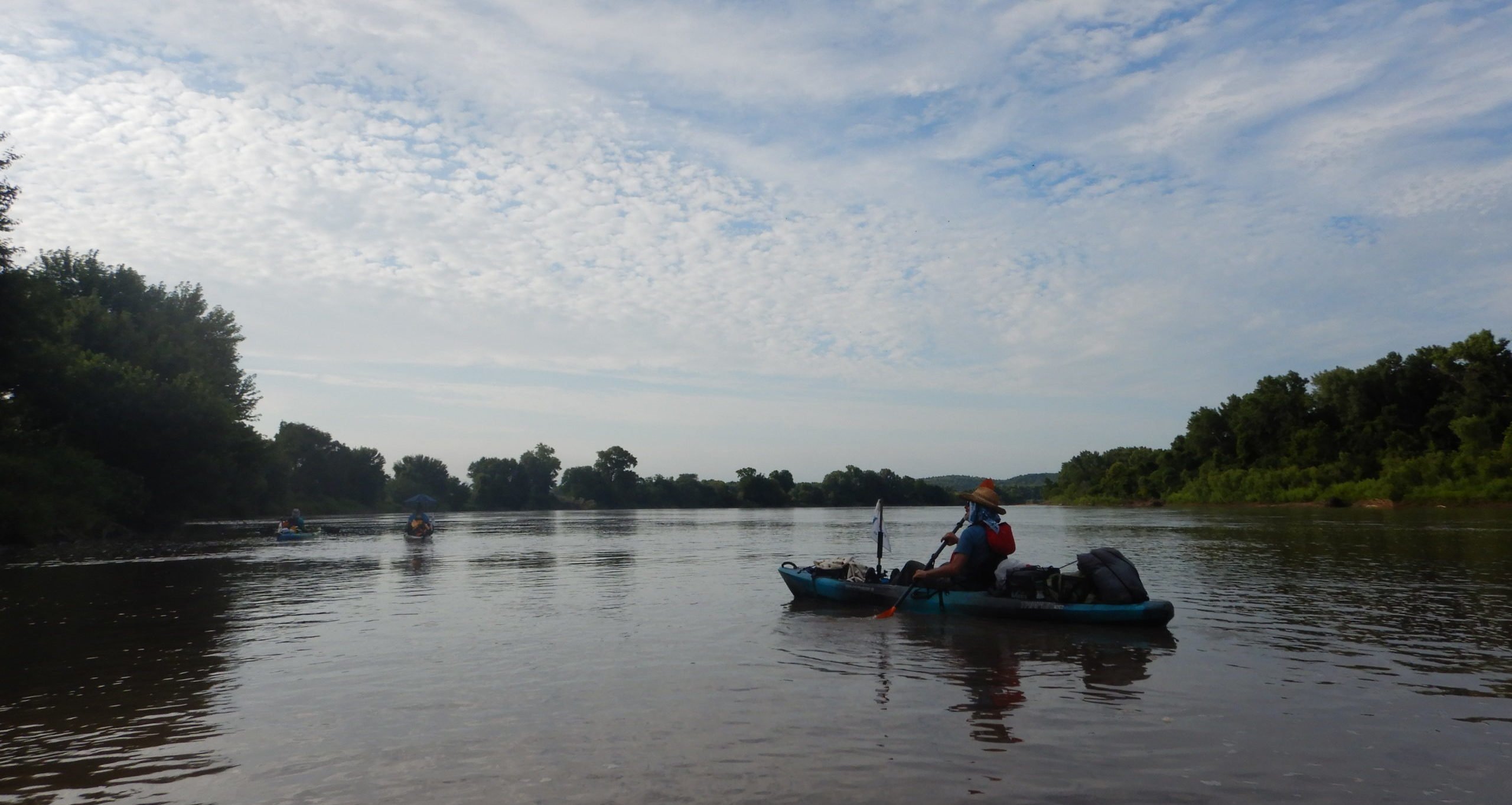Nature-Based Solutions to Climate Change in the Heartland | Regulatory Wins
By: Julia Widmann

By Julia Widmann
In the American Midwest, the climate crisis is nearly synonymous with the water crisis. The country’s heartland may not face threats of rising sea levels, but states like Kansas are already experiencing devastating floods along the United States’ most voluminous river — the Mississippi — and its tributaries.
Kansas Riverkeeper Dawn Buehler and her organization, Friends of the Kaw, see these changes firsthand and alert their community of changing river conditions, including flooding and potential safety concerns. These Kansas Riverkeeper updates became especially valuable during the Great Flood of 2019.

The Great Flood was a multipronged crisis, but Buehler narrowed in on one regulatory area in need of improvement and increased awareness: the Army Corps of Engineers’ manual for dam management along the Kansas River. “Its guidance is incredibly outdated,” says Buehler, “and these old regulations exacerbated the flooding and disaster in our watershed.”
Buehler and Kansas Riverkeeper’s advocacy for better regulations has only increased since. She serves on the Sustainable Rivers Program steering committee, a partnership between the Army Corps and the Nature Conversancy working on revising dam management plans on select rivers, including the Kansas River.
Additionally, in 2019 Buehler was appointed as chair of the Kansas Regional Advisory Committee, one of 14 committees responsible for crafting regional goals for the Kansas Water Vision, which will be included in the Kansas Water Plan.

As regional chair, Buehler recommended and advocated for the inclusion of a new goal for the Kansas River basin that centers around natural solutions — such as reforestation, regenerative agriculture, and reconnection of the wetlands and floodplain — to better prepare for the changing climate. Once approved by the state agency in spring 2021, the committee’s language around climate change and nature-based solutions will become a permanent fixture in the state’s water vision.
Buehler’s dedication has brought new attention to her role in the water conversation; in February 2021, she was lifted from her regional chair position and appointed to statewide Chair of the Kansas Water Authority.
“The people of Kansas are already experiencing the impacts of climate change and are having conversations about how to better prepare our communities,” said Buehler. “In a state that has historically been skeptical of well-established climate change science, we are happy to have been a part of including natural solutions into goals that can help to mitigate the impacts of climate change.”

Having lived through the historic flooding that lasted for much of 2019, Buehler and her team understand the climate crisis is accelerating.
“We believe that our efforts to push for conversations and action around the impacts of devastating floods and drought will have enormous impact on Kansans. Collectively, we can better prepare our farmers, our people, and our communities for what’s ahead.”